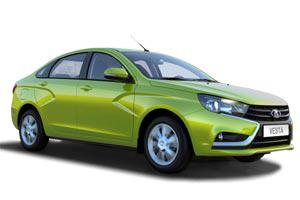Tue, 14 May 2024
Compare Mitsubishi Lancer 1.8 Sportback and Hyundai i30 1.6 CRDi (136 PS)
Technical specifications
| Clear list | Mitsubishi Lancer | Hyundai i30 |
| Totals | Mitsubishi Lancer 1.8 Sportback × | Hyundai i30 1.6 CRDi (136 PS) × |
| Mark | Mitsubishi | Hyundai |
| Model | Lancer 1.8 Sportback | i30 1.6 CRDi (136 PS) |
| Year | 2015 | 2020 |
| Number of doors/seats | 5/5 | 5/5 |
| Body type | Sedan | Hatch |
| Unladen Weight | 1450 | 1462 (1492) |
| Gross Weight Limit | 1900 | 1890 (1920) |
| Top Speed, km/h | 183 | 200 (200) |
| Acceleration 0-100 kph | 11.9 | 10.2 (9.9) |
| Minimum turning radius, m | - | - |
| Cargo Volume, min/max, L | 344/1349 | 395/1301 |
| Dimensions specifications, mm | Mitsubishi Lancer 1.8 Sportback × | Hyundai i30 1.6 CRDi (136 PS) × |
| Length | 4640 | 4340 |
| Width | 1760 | 1795 |
| Height | 1505 | 1455 |
| Wheelbase | 2635 | 2650 |
| Front/rear Track | 1530/1530 | 1573/1581 |
| Ground clearance | 140 | 140 |
| Engine specifications | Mitsubishi Lancer 1.8 Sportback × | Hyundai i30 1.6 CRDi (136 PS) × |
| Type | petrol Injection | turbo diesel Common Rail |
| Displacement, cm3 | 1798 | 1598 |
| Compression ratio | 10.7 | 15.9 |
| Number and arrangement of cylinders | 4 cylinders, in-line | 4 cylinders, in-line |
| The diameter of the cylinder x stroke, mm | 86x77.4 | 77x85.8 |
| Number of valves | 16 | 16 |
| Power, hp/rpm | 140/6000 | 136/4000 |
| Max torque, Nm/RPM | 176/4200 | 320/2000-2250 |
| Transmission specifications | Mitsubishi Lancer 1.8 Sportback × | Hyundai i30 1.6 CRDi (136 PS) × |
| Gearbox | CVT | 5-speed manual / 7-speed automatic DCT |
| Drive Type | Front wheel drive | Front wheel drive |
| Suspension specifications | Mitsubishi Lancer 1.8 Sportback × | Hyundai i30 1.6 CRDi (136 PS) × |
| Front | MacPherson strut | MacPherson strut |
| Rear | multi-link suspensions | multi-link suspensions |
| Tire Size | 205/60 R16 | 205/55 R16 |
| Disk | 5x114.3 ET46 d67.1
| 5x114.3 ET47 d67.1
|
| Brakes specifications | Mitsubishi Lancer 1.8 Sportback × | Hyundai i30 1.6 CRDi (136 PS) × |
| Front | Ventilated discs | Ventilated discs |
| Rear | Discs | Discs |
| Fuel consumption specifications, L/100 km | Mitsubishi Lancer 1.8 Sportback × | Hyundai i30 1.6 CRDi (136 PS) × |
| City | 8.6 | - |
| Highway | 5.4 | - |
| Combined | 6.6 | 4.8 (4.7) |
| Fuel | 95 | Diesel |
| Tank, L | 59 | 50 |
| Clear list | Mitsubishi Lancer | Hyundai i30 |













